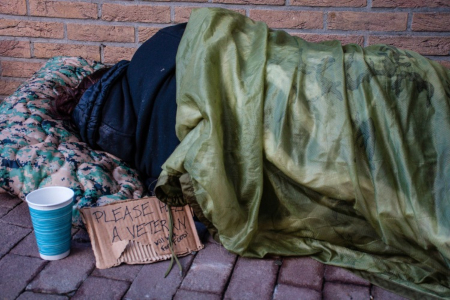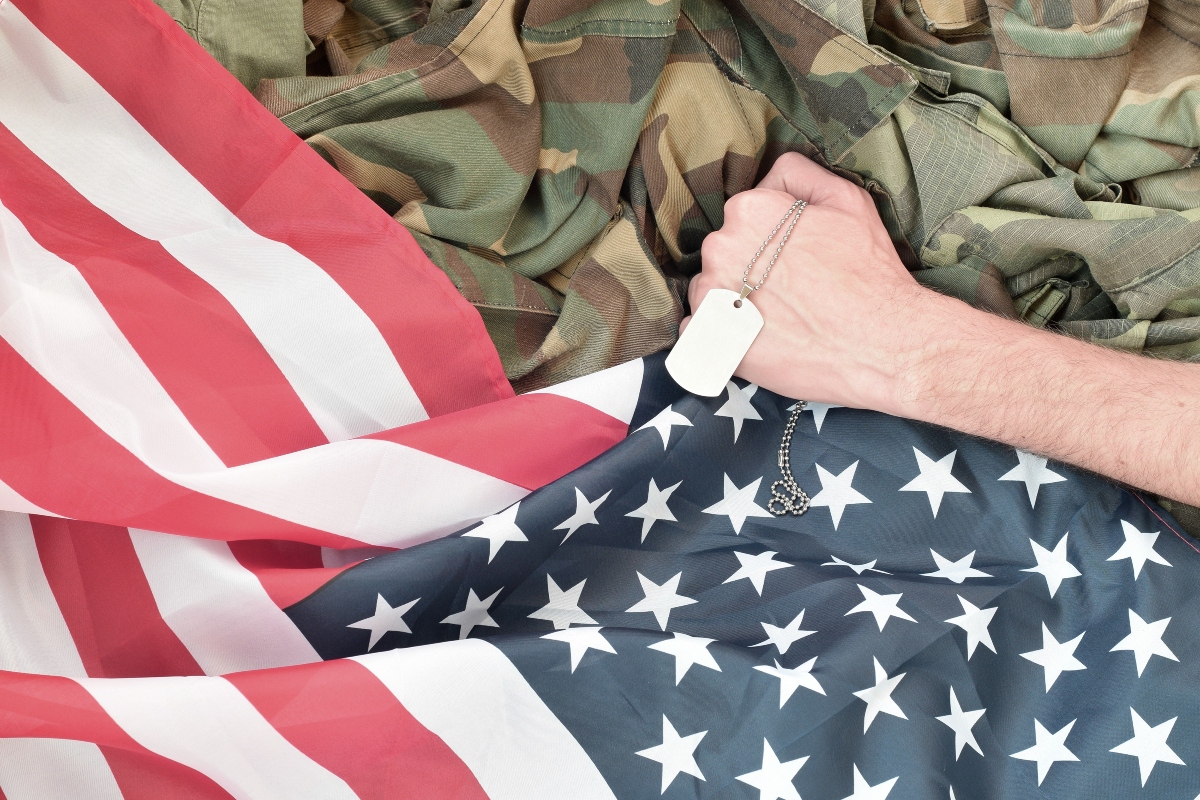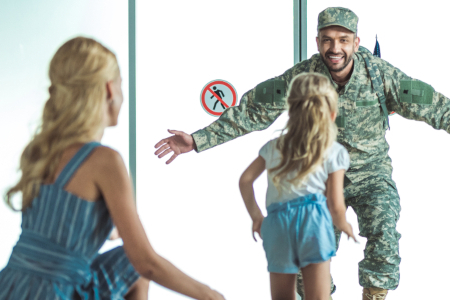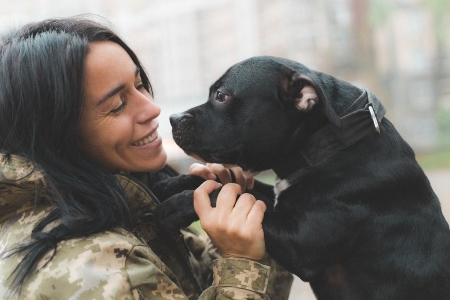Veteran Homelessness
In the US, Veterans make up about six percent of the population, but eight percent of the homeless. Veterans are at an increased risk of homelessness due to war activity and an increased likelihood of developing mental health disorders.
Veteran homelessness seems to grow as a problem that doesn’t have an easy solution. The Veteran’s Administration (VA) struggles to help the ever-increasing numbers of homeless vets but struggles to keep up with the problem. Understanding the causes and risks of veteran homelessness can help reduce the homeless veteran population.
What Is Veteran Homelessness?
A veteran served in one of the branches of the United States military — Army, Navy, Coast Guard, Air Force, Marine Corps, and Space Force. Veterans may have served during wartime and participated in war abroad. Since the mid-1970s, service in the military has been voluntary.
After finishing military service, a service member is considered a veteran indefinitely. Participation in a conflict zone has occurred during time spent in the military to be regarded as a war veteran. However, not every veteran leaves the military service and can afford to rent or buy a home.
In some cases, a veteran doesn’t have access to a safe, reliable home and becomes homeless. Other cases where veterans suffer from mental health issues that become exacerbated during the service. When struggling with mental health disorders finding the resources to deal with issues after discharge from military service can be challenging.
Once back in civilian life, these veterans can struggle to get the mental health care needed and become homeless. Addiction is also a big contributor to the homeless veteran population. According to the VA, in January of 2020, there were 37,252 homeless veterans, and this number represents a 50 percent decrease in homeless veterans since 2009.
Who Does Veteran Homelessness Affect?
Not all veterans and war veterans become homeless after leaving the military.
The homeless veteran population has served in a variety of conflicts, including:
- World War II
- Korean War
- Vietnam War
- Grenada
- Panama
- Lebanon
- Operation Enduring Freedom (Afghanistan)
- Operation Iraqi Freedom
According to the 2021 Annual Homeless Assessment Report (AHAR), these are some of the statistics concerning the veteran homeless population:
- Veterans make up more than 8 percent of the sheltered homeless population. More than 75 percent of homeless veterans struggle with some form of addiction.
- 19.750 veterans were experiencing sheltered homelessness in 2021
- Almost all of the veterans experiencing sheltered homeless were doing so on an individual level without family
- 92% of homeless veterans were male, which is similar to the percentage of men who are veterans in the US (91%)
- 18,243 beds in shelters were dedicated to veterans in 2021
- African American veterans made up more than one-third of the homeless veteran population, although 12% of the overall veteran population is African American
- California has the highest rate of homeless veterans in the US, with 16%
In this study, sheltered homelessness occurs when living in places like emergency shelters, transitional housing programs, and other supportive settings. Unsheltered homelessness occurs when living in places not meant for habitation like cars, parks, sidewalks, and abandoned buildings.
Many homeless veterans struggle with an addiction or a mental health disorder. As part of the homeless population, veterans find it difficult to get the healthcare and services needed to recover and return to a normal life.
What Are Some of the Causes of Homelessness in Veterans?
As with the homeless population in general, the veterans in this situation highlight some common causes for their current state. The causes of veteran homeless can vary based on experiences and predispositions to other conditions.
Most common causes of veteran homelessness include:
- Skills learned in service do not translate to high-paying jobs in the private sector
- High cost of housing produces a challenge to rent or buy a home with low-income
- Struggling with an addiction to drugs or alcohol can make it difficult to maintain employment and housing
- Lacking immediate family or a network of friends that can provide temporary housing
- Post-traumatic stress disorder (PTSD) affects many veterans who served during combat missions, and the symptoms leave them unable to maintain jobs and relationships
- Mental health disorders left untreated can cause difficulties maintaining housing and social relationships
The key to minimizing homelessness in the veteran population is to address its causes. Determining the root cause of homelessness in veterans can help reduce homelessness and ease a return to civilian life.
Risk Factors of Veteran Homelessness
Certain situations and conditions can put a veteran at risk for homelessness. While the risk factors don’t guarantee that the veteran will become homeless, it’s advisable to be aware of and monitor these risk factors.
Risk factors for veteran homeless can include:
- Low paying or unskilled jobs
- Living at or below the poverty line based on the area of residence
- Struggling with an addiction to drugs or alcohol
- Lacking a close family connection or a reliable social network
- Struggling with mental health disorders
- Living in an area that is economically depressed without access to medical care, nutritious food, and safe, affordable housing
Final Thoughts
Veteran homelessness is an ongoing concern without an easy solution. Veterans ‘ mental health and substance abuse struggles are a big risk factor for veteran homelessness. Offering treatment for struggling veterans can mitigate the risk of losing a home or shelter.
Solara Mental Health in San Diego, CA, is partnered with the VA to offer mental health services to veterans in need. If you or a veteran you love is struggling with mental health disorders, reach out to us today. Our team can answer any questions you may have and give you a better understanding of our veteran mental health program.






